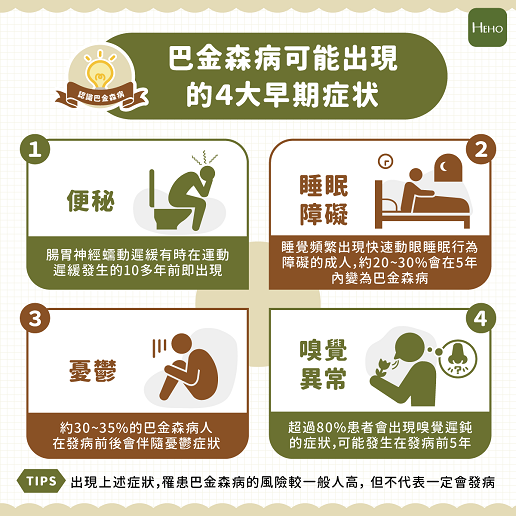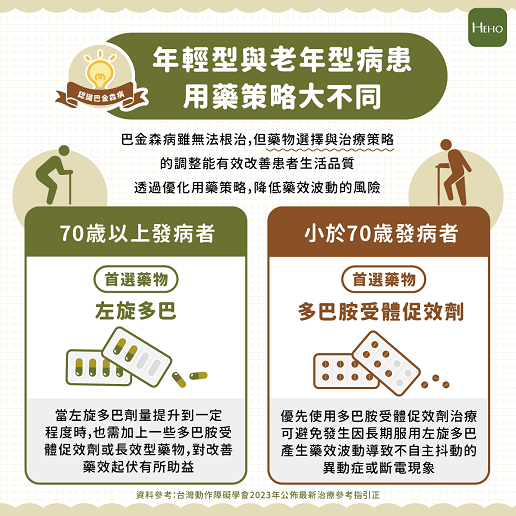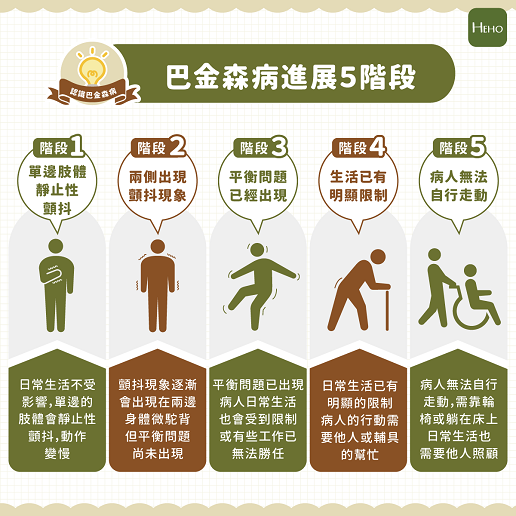Understanding Parkinson's Disease: Symptoms and Effective Treatments
Parkinson's Disease is the second most common neurodegenerative disorder globally, significantly impacting patients' quality of life. While the risk of developing Parkinson's increases with age, public awareness about the disease remains limited. This article explores the causes, symptoms, and how medications can improve patients' quality of life.
Causes of Parkinson's Disease
Dr. Chang Yong-Yi from the Department of Neurology, Kaohsiung Chang Gung Memorial Hospital, explains that despite advancements in modern medicine, the exact causes of Parkinson's Disease remain unclear. It is generally believed to be associated with genetic and environmental factors. The disease is mainly caused by the degeneration of dopamine neurons in the brain's substantia nigra, reducing dopamine levels in the basal ganglia, thereby impairing motor functions. When dopamine levels decrease by more than 50-60%, clinical symptoms begin to appear.
Core Symptoms of Parkinson's Disease
Dr. Chen Yi-Chieh from the Neurology Department, at Linkou Chang Gung Memorial Hospital, identifies the three core symptoms:
- Bradykinesia: Slowness of movement, difficulty initiating actions.
- Rigidity: Stiffness in the limbs or trunk.
- Resting Tremor: Involuntary tremors at rest, often in the hands or feet.
Early symptoms, such as slowed walking or hand tremors, are often mistaken for natural aging, delaying diagnosis. The 4 Major Early Symptoms of Parkinson's Disease. (Image provided by Heho Health)
The 4 Major Early Symptoms of Parkinson's Disease. (Image provided by Heho Health)
Early Warning Signs
Before typical symptoms appear, patients may experience the following non-motor warning signs:
- Constipation: Slowed intestinal movement, sometimes occurring over a decade before motor symptoms.
- Sleep Disorders: Rapid eye movement sleep behavior disorder (RBD), where patients may punch or kick during sleep.
- Depression: About 30%-35% of patients experience depressive symptoms before or after onset.
- Olfactory Abnormalities: Over 80% of patients experience diminished or lost sense of smell before onset.
Treatment: Key to Improving Quality of Life
Although Parkinson's Disease cannot be cured, early diagnosis and proactive treatment can significantly enhance the quality of life. Treatment options include:
- Levodopa: Supplements dopamine levels in the brain and is considered the gold standard. However, prolonged use may lead to fluctuating efficacy.
- Dopamine Agonists: Suitable for younger patients, offering long-lasting and stable effects while reducing fluctuations.
Dr. Chen Yi-Chieh emphasizes that early treatment helps patients maintain normal daily activities, while delayed treatment may result in more severe symptoms.
Why Do Medications Lose Effectiveness Over Time?
Parkinson's Disease is progressive. As the disease advances, dopamine-producing cells decrease, reducing medication efficacy. Patients may require higher dosages, potentially leading to dyskinesia (involuntary movements) or shorter effective medication periods.
Treatment Strategies for Different Age Groups
According to guidelines from the Taiwan Movement Disorders Society, patients under 70 are recommended to prioritize dopamine agonists, while those over 70 may start with Levodopa. Dopamine agonists help reduce overstimulation of the brain and minimize the risk of efficacy fluctuations. Medication Strategies Differ Between Young-Onset and Elderly Parkinson's Patients. (Image provided by Heho Health)
Medication Strategies Differ Between Young-Onset and Elderly Parkinson's Patients. (Image provided by Heho Health)
Managing Parkinson's Disease with Proper Medication
Dr. Chang Yong-Yi stresses that appropriate medication strategies can help patients effectively manage their condition and improve their quality of life. Despite the inevitable occurrence of efficacy fluctuations and dyskinesia as the disease progresses, adjusting treatment plans allows patients to maintain a good quality of life and coexist with Parkinson's Disease.







